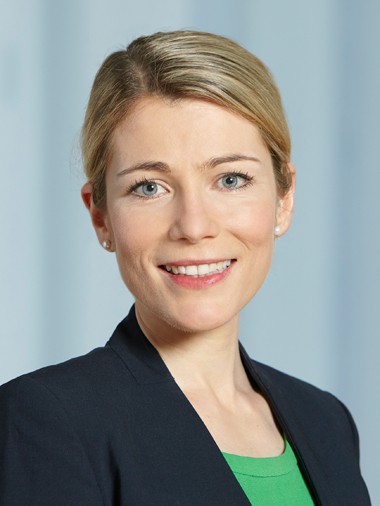Prof. Dr. Simone Schürle-Finke

Prof. Dr. Simone Schürle-Finke
Associate Professor at the Department of Health Sciences and Technology
Additional information
Research area
The Responsive Biomedical Systems Lab develops diagnostic and therapeutic systems at the nano-and microscale with to tackle a range of challenging problems in health care, including the increasing cancer burden and infectious diseases.
The research focus is twofold: The group develops tools to study disease mechanisms in vitro at the cellular level. We then use this knowledge to inform the design and fabrication of responsive nanosystems that help diagnose or treat diseases with minimal invasion. As such, these systems react for example to locally present signals of the disease environment, such as characteristic pH levels or enzymatic activity. For an additional level of control, simple on-board circuits are added to activate these systems through externally applied stimuli including heat, acoustic, mechanic or electromagnetic signals, resulting in a diagnostic or therapeutic output such as local, on demand release of drugs.
For this purpose, strategies derived from chemical synthesis, synthetic biology and nanofabrication techniques will be applied. This interdisciplinary work is based on the convergence of several fields and integrates methods and ideas from chemists, physicists, computer scientists, engineers and mathematicians.
Simone Schurle, born in Ulm, Germany, is researching in the field of biomedical engineering and Assistant Professor (Tenure Track) for Responsive Biomedical Systems at ETH Zurich. She graduated in 2009 from the Karlsruhe Institute of Technology in Industrial Engineering and Management (Dipl. Wi.-Ing.) with specialization in micro/nanosystems. During her studies, she researched at the University of Canterbury, New Zealand, about automated drug infusion and control, and at the University of Kyoto, Japan, in the field of carbon nanotube based nanosensors. She then joined the Institute of Robotics and Intelligent Systems at the Swiss Federal Institute of Technology in Zurich (ETHZ) where she focused on magnetic manipulation techniques for biomedical applications. She was awarded with the ETH medal for her doctoral thesis and with fellowships from the SNSF, DAAD and the Society in Science for her postdoctoral studies at the Koch Institute for Integrative Cancer Research at the Massachusetts Institute of Technology, where she was researching as postdoctoral fellow from 2014-2017. Besides activities in public outreach work and education, she is serving as Global Future Council for the World Economic Forum. She is also co-founder of MagnebotiX, a young spin-off from ETHZ.
Course Catalogue
Autumn Semester 2024
| Number | Unit |
|---|---|
| 376-0303-00L | Colloquium in Translational Science (Autumn Semester) |
| 376-1622-00L | Practical Methods in Tissue Engineering |